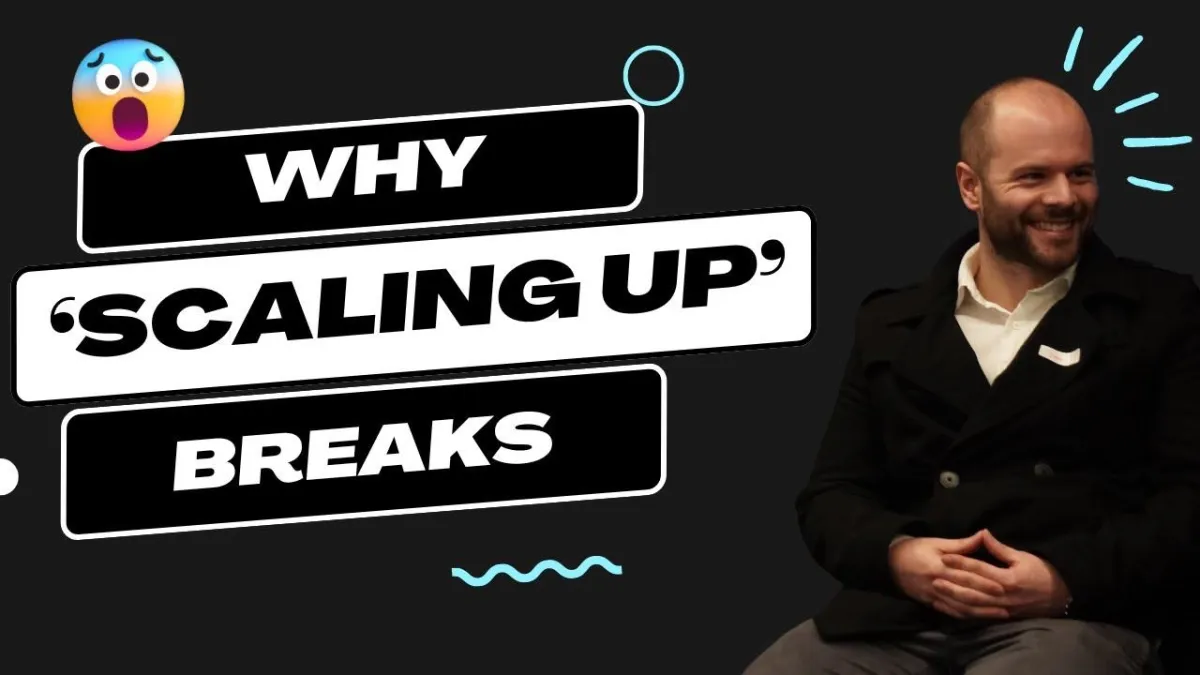
Why 'Scaling Up' Breaks Businesses
Why Volume Breaks and How to Build a Sustainable Sales Engine
The desire to scale quickly is a common aspiration among businesses. However, many fall into the trap of scaling inefficiently, leading to dwindling profits and unsustainable growth. In this post, I'll explore why traditional volume-based sales and marketing strategies break down at scale and offer a more sustainable approach focused on building a robust ecosystem.
To watch the training head here otherwise continue reading:
The Problem with Volume at Scale
Many businesses are misled by the notion that more leads, calls, or ads automatically translate to more sales. This approach might yield some early wins, but it's fundamentally flawed. As you try to reach a wider audience, lead quality drops, sales cycles lengthen, and customer acquisition costs skyrocket. The result is a negative ROI and a misaligned revenue engine.
Understanding Market Dynamics
The key to scaling sustainably lies in understanding the nuances of your market. Within your total addressable market (TAM), you'll find different desires, personas, and stages of awareness. Trying to reach everyone with a single message is inefficient and often leads to burnout.
The Three-Phase Process
Volume: Start by generating volume and gathering data to understand your market and identify your ideal customer profile (ICP).
Quality: Once you have a clearer picture of your ICP, focus on attracting high-quality leads.
Volume and Quality: With a solid foundation and a refined sales process, you can then scale while maintaining quality and efficiency.
Building an Ecosystem
A sustainable sales engine relies on building an ecosystem that educates and nurtures potential customers. By creating valuable content that addresses their pain points and demonstrates your solutions, you can guide them through their buying journey and establish trust.
Key Components of a Successful Ecosystem:
Demand Creation: Use content marketing, social media, and other tactics to create awareness and interest in your brand.
Demand Capture: Implement lead magnets, webinars, and other strategies to capture leads and nurture them through the sales funnel.
Conversion: Develop a clear and effective sales process that guides qualified leads towards a purchase.
Conclusion
Scaling your business requires a strategic approach that focuses on quality and efficiency. By understanding your market dynamics, optimizing for high-intent revenue opportunities (HIRO), and building a robust ecosystem, you can achieve sustainable growth and long-term success.
If you're struggling with scaling your sales team or want to learn more about building an effective ecosystem, feel free to ask any questions in the comments below!